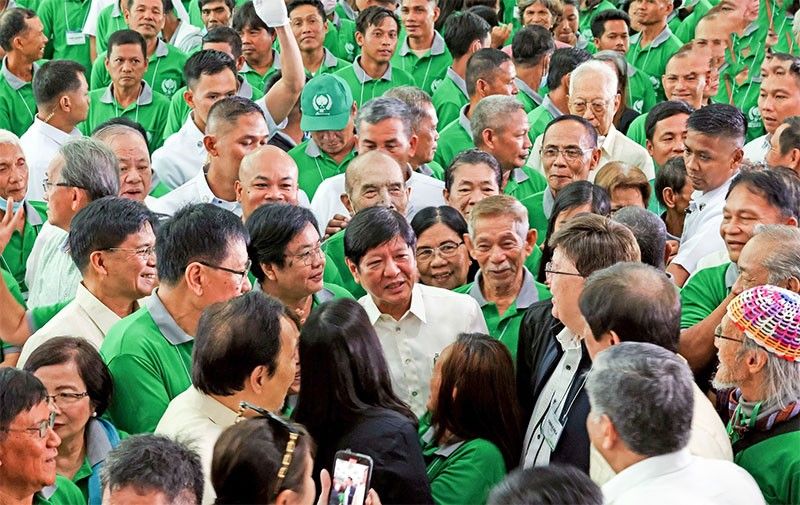Marcos orders review of proposals for solar-powered irrigation program

MANILA, Philippines — President Marcos has ordered a review of proposals from an alliance of farmers for a nationwide solar-powered irrigation program, and for the establishment of a farm-to-market digital integrated backbone as well as of an electronic commodity exchange system to enable farmers to sell their products directly to buyers in urban areas.
In an interview with The STAR, Federation of Free Farmers (FFF) board chairman and former agriculture secretary Leonardo Montemayor said the President made the promise on Wednesday during the group’s 70th anniversary celebration, which he attended.
Montemayor said they relayed the recommendations to Marcos through a memorandum delivered a week before Marcos graced the event.
“There is still no specific decision from the President as it is too soon as the memorandum was only sent last week, although he did promise to order its review. He thinks it’s reasonable,” Montemayor said.
He added the FFF would be ready to provide details of at least seven of the proposals if asked by Malacañang.
“We can give the proper justification should they be asked from us,” the FFF official said.
Montemayor said that the proposed solar-powered irrigation program intends to cover at least 200,000 underserved service areas of the National Irrigation Administration.
“In this regard, give priority consideration to the fertigation (irrigation cum fertilization) proposal of Oscar Violago, the principal architect and developer of the successful Casecnan multi-purpose irrigation and power project and the Wawa Dam water supply system for Metro Manila,” Montemayor added.
Also included in their memo is their voicing of support for the memorandum of understanding between the Panay Railways Inc., Department of Science and Technology and Philtrak Inc. for the establishment of a farm-to-market digital logistics integrated backbone system.
“This project will help farmers and fisherfolk to mass transport their produce directly to urban markers, thus increasing their incomes and making food more affordable to consumers. It will optimize the use of the same physical space of the 38-year decommissioned Panay Railways by also including food production, postharvest facilities, public markets, mass housing and other service facilities,” he said.
“There will be real time posting of selling bids, online purchasing, payments and delivery arrangements. It will cut down on cost and will improve earnings of the farmers through the cooperatives. Consumers will also benefit,” he said, referring to FFF’s proposal for a nationwide electronic commodity exchange system. The program involves using idle warehouses of the National Food Authority as delivery and storage areas for farm products.
Other proposals of FFF are the return of the Philippine Crop Insurance Corp. to the Department of Agriculture, issuance of an executive order creating an office for agricultural cooperatives within the DA, a review of the agricultural guarantee program of the Philippine Guarantee Corp., and strengthening of farmers’ and other stakeholders’ representation in the DA, particularly in the management of the Rice Competitiveness Enhancement Fund and the Agricultural Competitiveness Enhancement Fund.
- Latest
- Trending






























